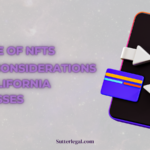by Attorney Boyana Bounkova
Table of Contents
- 1- It is good to select a mark for your product as early as possible.
- 2- Your company name does not need to be the trademark for your product or services.
- 3- Make sure you and your attorney select the name carefully before you start using it and attempting to register it.
- 4- Have your attorney file for registration as soon as you can.
- 5- If properly and timely maintained, the mark registration can last forever.
As an experienced San Francisco and Bay Area Intellectual Property, Trademark, and Copyright attorney I can attest to the importance of securing your name and trademark.
I have personally worked in startup acquisitions where the primary asset of the company is its registered trademark. Yet, for some startup companies trademark protection is not something that they generally consider a top priority, trademarks are usually believed to be expensive and not of immediate importance.
Trademarks, however, are a core asset for each business, they create an immediate value that has the potential to grow and even be sold as a separate property.
In addition, if the mark is properly selected, the registration process is pretty straightforward and inexpensive.
This is why it is very important for startups to protect their mark as early as possible to secure their interest in the brand name they have chosen.
Here are some helpful tips to keep in mind while doing so.
1- It is good to select a mark for your product as early as possible.
The sooner you select the name for your mark, the earlier you may start building value in your product or service. Also early choice of a mark gives you the chance to secure your rights in the name first and thus keep direct competitors and other related businesses from using similar names for similar goods and products.
Of course, in order to obtain the full scope of protection accorded to a trademark by the U.S. Trademark Act, you need to register your mark with the United States Patent and Trademark Office.
2- Your company name does not need to be the trademark for your product or services.
Your corporate company name, which you use to register your business with the Secretary of State, does not immediately become your trademark.
If you would like to use your company name as your business name and a trademark for your goods and services you need to obtain trademark protection for it.
Also, the trademark for your goods and services does not need to be the same as your company name. In fact, you can have multiple trademarks for the different goods and services that your company offers and provides.
3- Make sure you and your attorney select the name carefully before you start using it and attempting to register it.
You need to be very careful when selecting the name for your mark because not every mark can legally serve as a trademark, nor can it be registered with the United States Patent and Trademark Office.
Before you choose your mark, make sure that you select a word that is unique and distinctive.
You need to do a comprehensive search to see if another company or person is using the same or similar mark for goods or services that are similar or somehow related to yours.
Another important issue you need to consider is how ‘strong’ your mark is from a legal standpoint.
If a mark is ‘weak’ it will not be protected, usually, generic and descriptive marks are considered weak and incapable of protection, while strong marks are considered those that are fanciful, arbitrary, or suggestive.
In addition, the USPTO will not allow registration of marks that are: surnames, geographically descriptive of the origin of the goods and services; foreign terms that translate into descriptive or generic terms; names and likenesses of individuals; titles of single books and/or movies and matters that are used in a purely ornamental manner.
4- Have your attorney file for registration as soon as you can.
Even though in the United States federal registration of a trademark is not a prerequisite to protection, as soon as you are certain that the mark you have selected is unique, distinctive, and strong and of course that it has not been used or registered by another business, you should file for registration of that mark.
The registration of a mark offers multiple advantages to the mark owners, they can easily establish, prove, protect, and enforce their rights in the mark.
In the US you can file for a trademark registration before you have actually started using the mark in commerce.
5- If properly and timely maintained, the mark registration can last forever.
Unlike patent and copyright protection, which have a limited period of legal protection, trademarks can be protected forever if your business continues.
The only thing you need to do is take care of the legal formalities and renew your trademark registration by filing the required renewal forms with the USPTO.
If you would like to set up a consultation with an experienced San Francisco and Bay Area Trademark attorney call or email.






